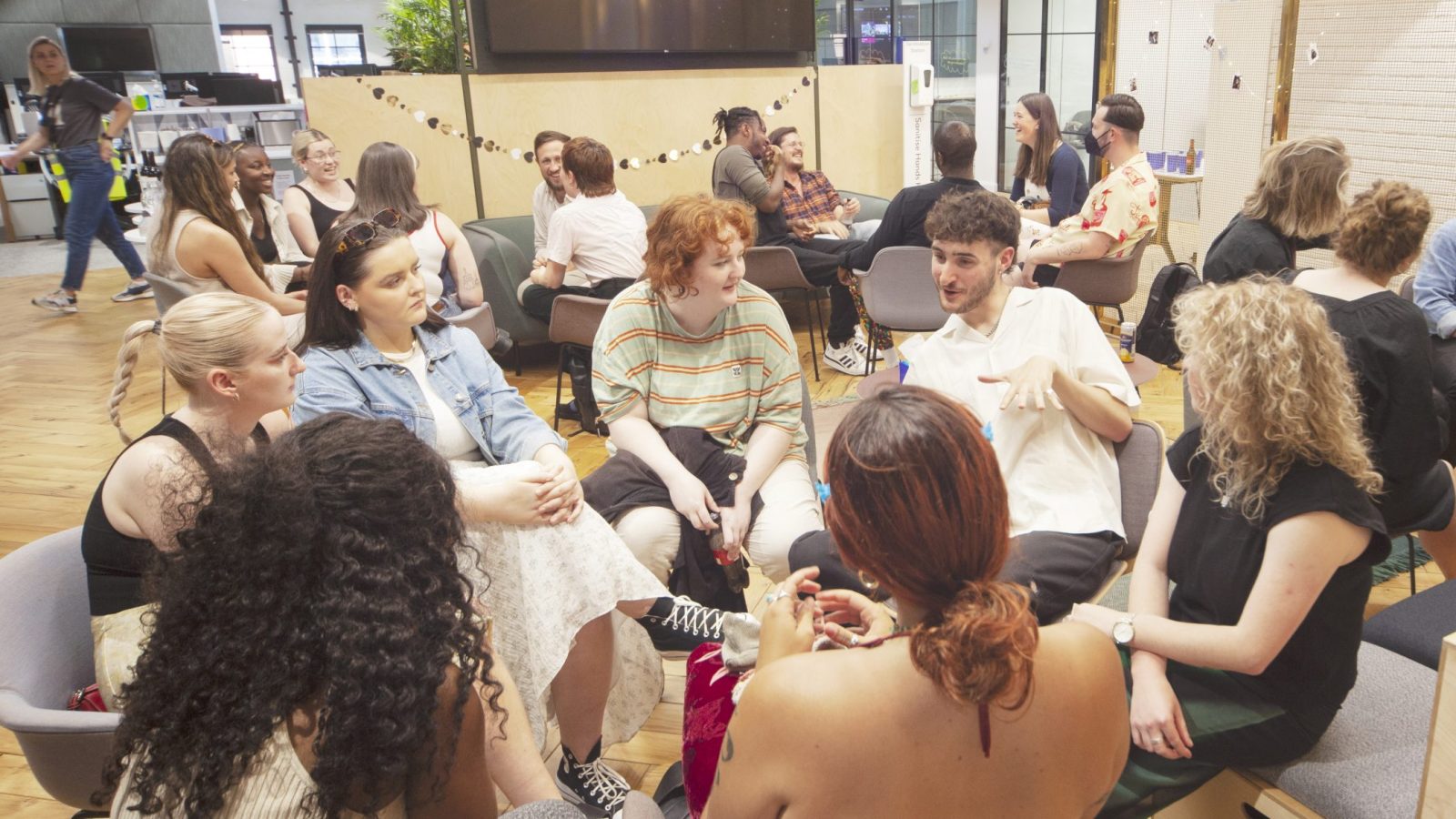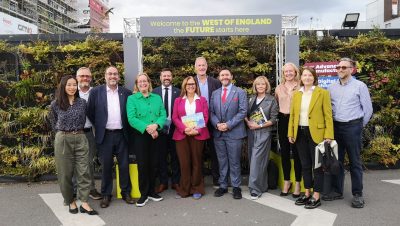News / Creative Industries
Creative industries report highlights ‘invisible doors’
New research uncovers critical challenges around access, equity and employment practices in Bristol’s creative sector.
Non-profit creative agency Rising Arts Agency’s latest report highlights the persistent barriers faced by individuals trying to enter and re-enter the creative and cultural industries in Bristol and the South West.
The organisation, led by young underrepresented creative thinkers aged 18 to 30, proposes radical interventions to create a more equitable sector at every level across multiple sectors from film and TV, theatre and visual arts to design, writing and journalism.
is needed now More than ever
Commissioned by 4Skills and Channel 4 Creative Equity, the comprehensive Invisible Doors Report was developed over three years from 2022 to 2025 through extensive community engagement and industry consultation.
This was then informed by a steering group made up of freelancers, small and medium-sized enterprises, education providers and organisations working across Bristol and the South West.
The report takes its name from a metaphor used by one of the interview participants, who spoke about not being overtly discriminated against but instead feeling like there were “invisible doors” that they couldn’t see or access but their peers could.
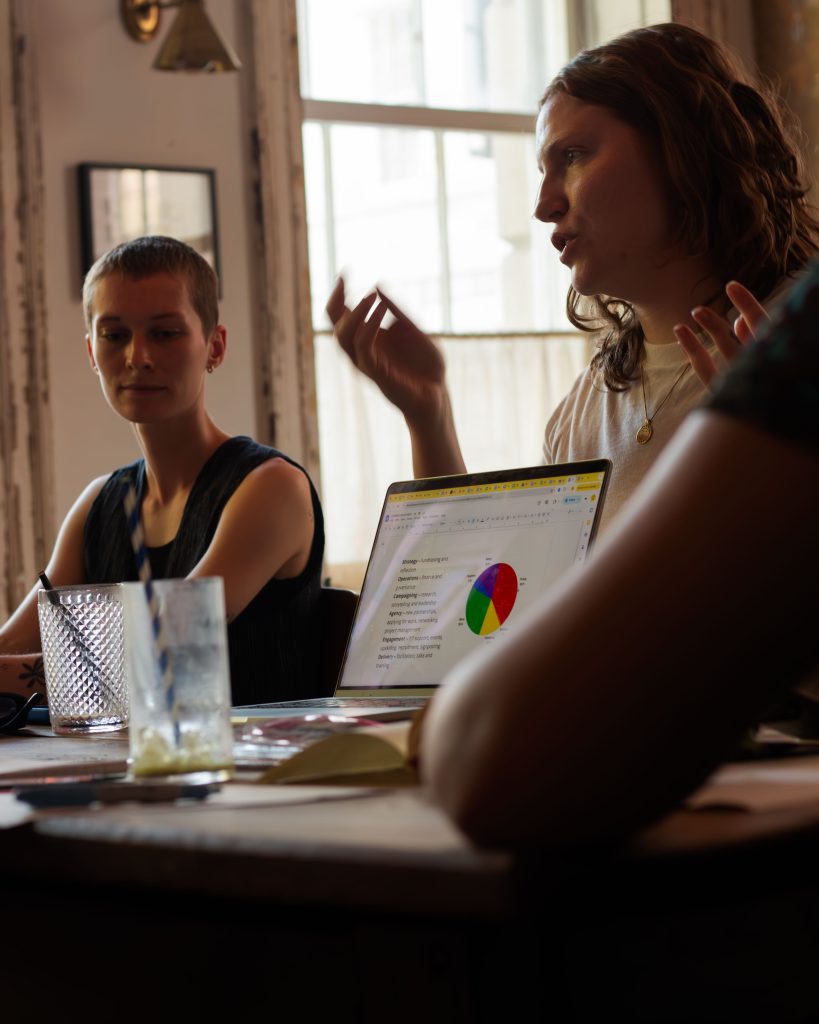
Rising Arts Agency supports underrepresented young creatives aged 18 to 30 – photo: Khourie Allen
The report offers a timely and urgent critique of the creative and cultural sector’s harmful practices when working with freelancers and the impact it’s having on the workforce.
It highlights how a lack of education, structural barriers, precarious employment practices and gatekeeping continue to limit opportunities, particuarly for those from marginalised and underrepresented backgrounds.
Key findings include:
- The need to unlink ‘emerging’ from age – 62 per cent of respondents felt that entry level creative opportunities are only for 16- to 30-year-olds, making it difficult for those outside that age to get meaningful opportunities to enter the sector.
- Low or unpaid work – 88 per cent of participants felt that the creative industry expects people to work for low or no pay to get exposure, resulting in 64 per cent of the participants feeling like that they could no longer afford to work in the creative industries.
- Moving beyond box ticking diversity exercises – An urgent need to reimagine the ethos of the sector, moving beyond tokenism toward structural change that puts care at the centre.
- A disregard for wellbeing and sustainable working levels – All respondents agreed that the creative sector expects you to be immune to burn-out. As one survey respondent highlighted: “We have created a suffering mentality within the arts.”
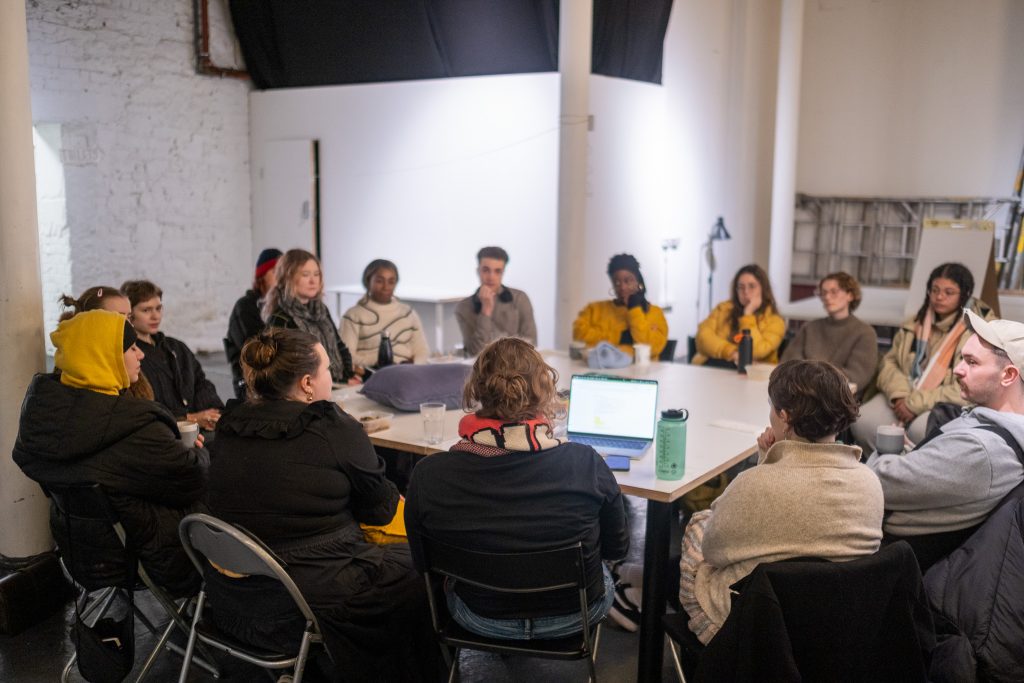
Getting consistent work has been challenging for freelancers in recent years – photo: Olumide Osinoiki
The initial research phase was conducted by two young creatives, Priyanka Raval and Siobhan McCluskey, in 2022 and 2023.
“Where there is a crisis, comes a chance to innovate and rebuild,” Priyanka and Siobhan said in a joint statement.
From 2023 to 2025, Rising Arts Agency built on this research, consulting with industry and convening the Invisible Doors Steering Group to create a bold set of recommendations designed to dismantle barriers into the sector and challenge the status quo: from new approaches to recruitment to radical shifts in leadership and accountability.
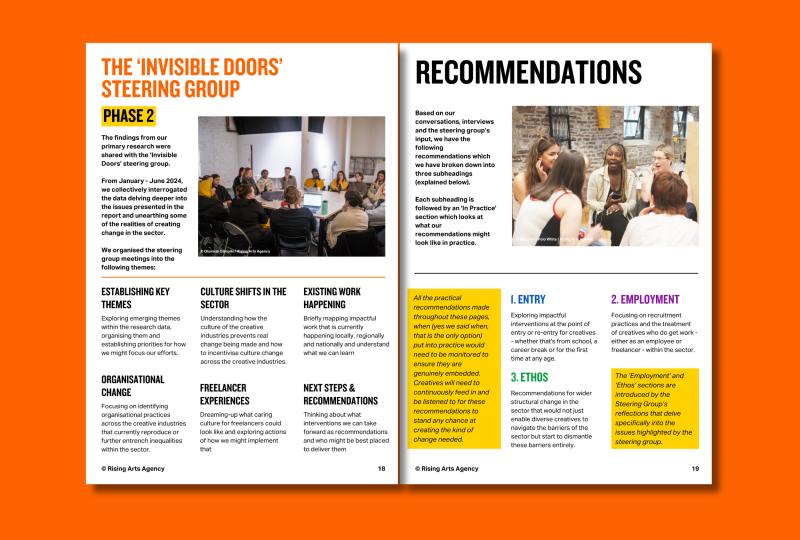
Rising Arts Agency – alongside the 12 members of the Invisible Doors steering group such as access consultant Ant Lightfoot, CEO and artistic director of Beyond Face CIC, Alix Harris, and Adrienne Noonan from UWE – have put forward ambitious and weighty recommendations of how we can move forward as a sector.
Rising Arts co-director Euella Jackson and Jess Bunyan declared this “a call to funders, institutions and employers to radically rethink how we work, think and relate to each other”
They added: “We cannot have change without interrogating the assumptions and practices of the sector at every level.”
It builds upon the work currently happening and creates space for thinking, dreaming and creating creative and cultural industries that are safe, accessible and equitable for all.
The Invisible Doors Report is now available to download at www.rising.org.uk/blog/invisible-doors-2025
Main photo: Mercedes Polo Portillo
Read next:
 Our newsletters emailed directly to you
Our newsletters emailed directly to you